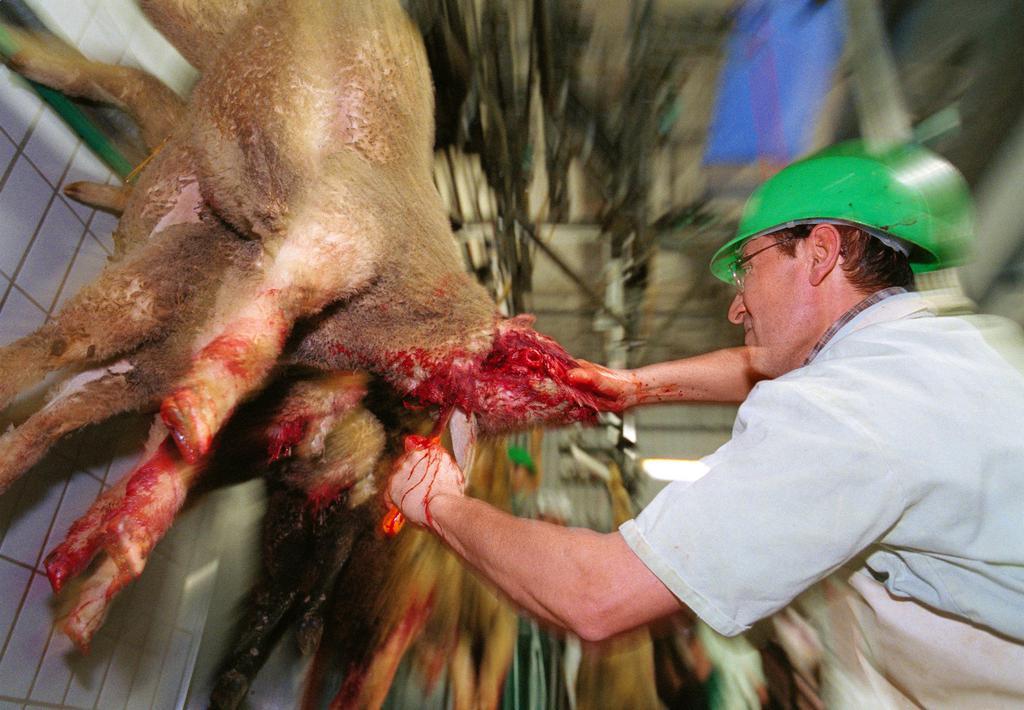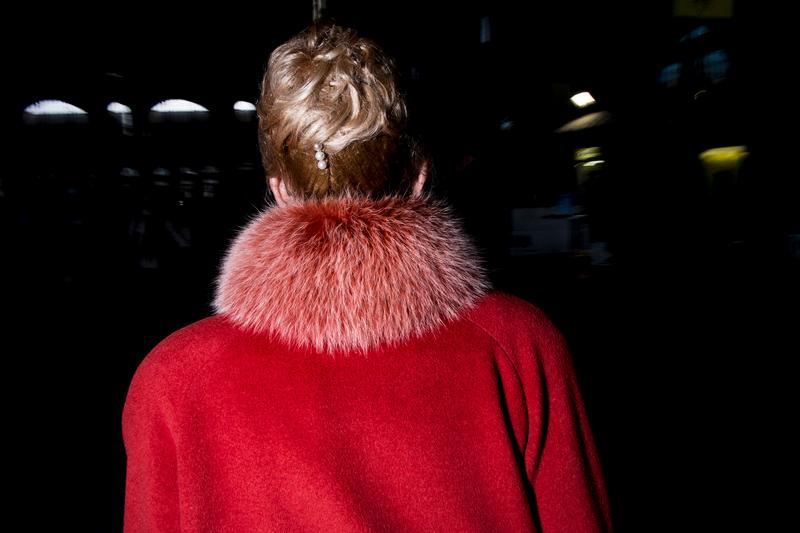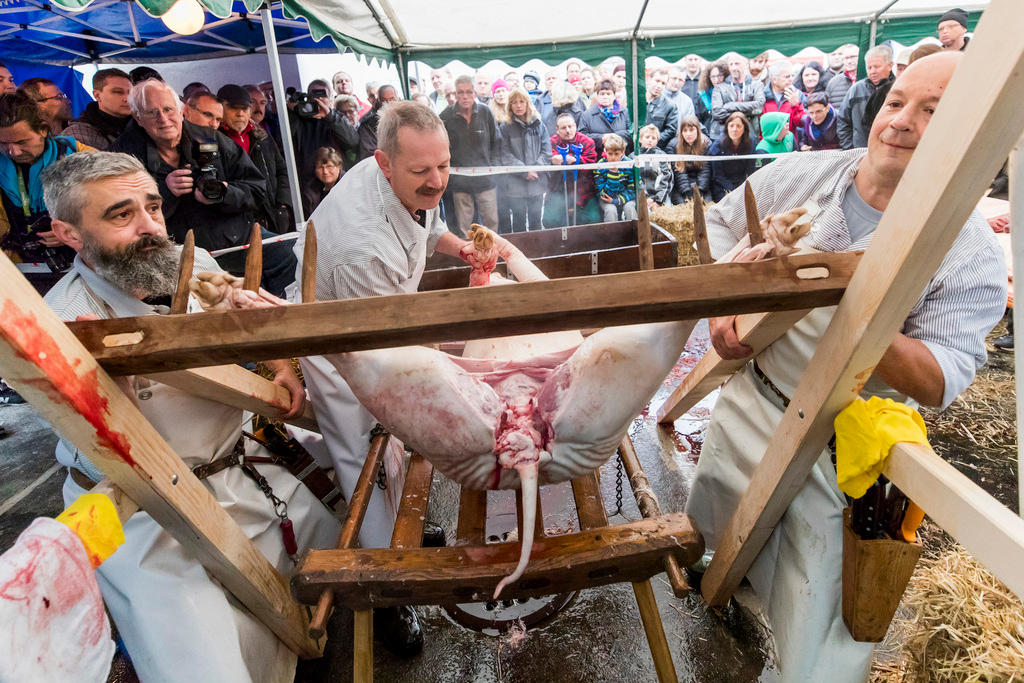Animal protection or religious freedom?

In Switzerland, animal welfare groups are launching an initiative to ban the import of animal products obtained via cruel methods. Yet there’s a debate as to whether a ban should include kosher and halal meat.
Swiss animal protection laws forbid the production of products like foie gras and frog legs [see box below]. The fact that these items can be imported is both a contradiction and a thorn in the eye to animal rights activists.
After a motion for an import ban failed in parliament, animal welfare groups have turned to direct democracy in the form of a people’s initiative.
Snubbing Jews and Muslims?
Potentially volatile is the question of whether kosher and halal meat will fall under the ban. Killing a conscious animal by slitting its throat and letting it bleed to death has been banned in Switzerland since 1893. This butchering method is permitted only if the animal is anaesthetized beforehand.
“In principle, it is not clear why religion should override our law,” says Michael Gehrken of Alliance Animal SuisseExternal link. Yet just last December, Gehrken told swissinfo.ch that halal and kosher meat should be exempted from the planned import ban.
“Fundamental rights are guaranteed in Switzerland, notably religious freedom,” said Gehrken then.
The question of what’s more important – animal welfare or religious freedom – will likely be a central issue in the voting campaign. According to Switzerland’s historical lexiconExternal link, voters accepted the prohibition of kosher butchering at the end of the 19th century for anti-Semitic reasons. This could now be used as an argument against the current initiative.
Animal welfare groups are considering whether to launch the initiative in the form of a “general suggestion” – leaving it to the Swiss parliament to formulate the constitutional article and to name concrete products to ban. According to Gehrken, this procedure might take a little longer but has the advantage that conflicts would not have to be debated during the voting campaign.
Not allowed in Switzerland, but still eligible for import
Eggs from battery hens: The laying hens live in cramped cages, which is forbidden in Switzerland.
Foie gras: Geese and ducks are force-fed via a metal tube several times a day in order to make their livers grow quickly. Poking the metal tube into the esophagus often results in injuries. In Switzerland, this procedure is expressly prohibited as animal cruelty.
Frog legs: Typically, the legs are sliced off live frogs, who suffer for hours before they die. Foreign methods of frog leg production are expressly prohibited in Switzerland.
Fur: On fur farms, mink, foxes, raccoon dogs and other animals are exposed to constant overstimulation in narrow cages with wire mesh floors and nowhere to retreat. Those animals that are hunted are usually caught with traps, often suffering severe injuries. Whether farmed or trapped, the methods of killing are cruel and forbidden in Switzerland.
Quail eggs: For the production of quail eggs, migratory birds, which normally live in small groups, are crammed into cramped battery cages. This form of animal husbandry is prohibited in Switzerland.
Other products being discussed: shark fins, seal babies, reptile skins, halal and kosher meat (unless animals are stunned first).
Translated from German by Susan Misicka

In compliance with the JTI standards
More: SWI swissinfo.ch certified by the Journalism Trust Initiative












You can find an overview of ongoing debates with our journalists here . Please join us!
If you want to start a conversation about a topic raised in this article or want to report factual errors, email us at english@swissinfo.ch.